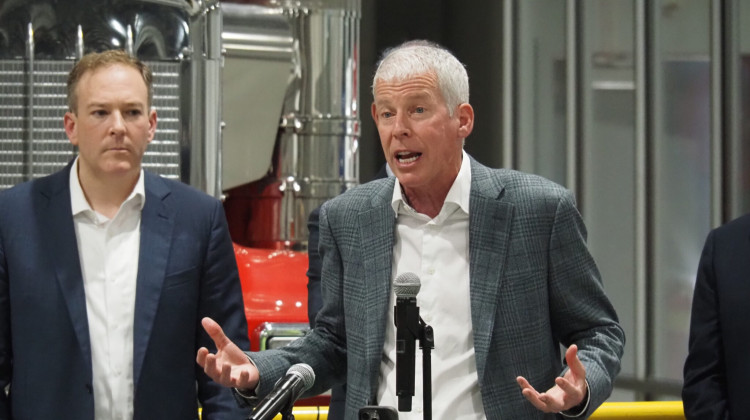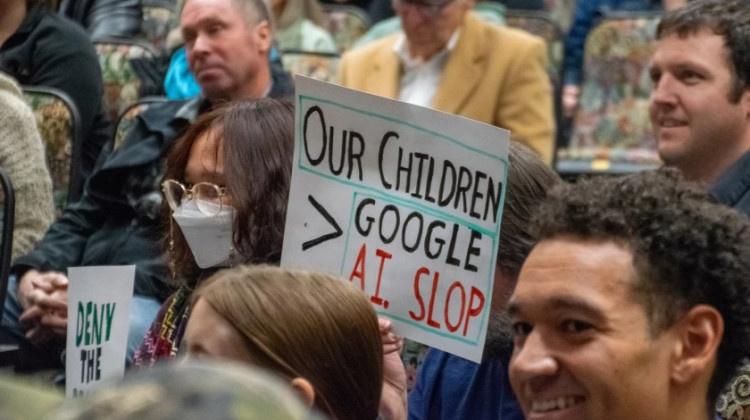Following civil unrest and protests, cities across the country are rethinking how they approach policing.
In Indianapolis, two police oversight boards were reformed to include a civilian majority -- the Use of Force Review Board and the General Orders Board. A year later, both boards have started to conduct official business.
City officials, police and community members say the new boards are a step in involving the community more in public safety and improving transparency.
Here is what you need to know about the General Orders Board and how it functions.
What is the General Orders Board?
The General Orders are written policies that regulate how Indianapolis Metropolitan Police Department officers do their jobs. For example, the General Orders include how and when officers can use force, when they may use a firearm, the code of ethics they must follow and what training they must complete annually. There are more than 540 pages of General Orders.
The General Orders Board examines these police policies and considers possible changes.
The newly reformed General Orders Board has seven members, four are civilians. The mayor and the City-County Council each nominate two civilian members. IMPD Chief Randal Taylor has the final say on who sits on the board and formally appoints the nominees.
The board meets the third Monday of each month, Members of the public may attend in person or obtain recordings via a public records request with the city.
IMPD Deputy Chief Kendale Adams said each meeting focuses on a specific policy. So far, IMPD has selected all the policies that the board has reviewed, but Adams said board members may make suggestions for the agenda.
“Primarily, it's looking at our policy to determine, you know, what is acceptable, what's not acceptable? What needs clarification?” Adams said of the board’s function.
In its first several meetings, the board has discussed and approved IMPD’s policies regarding body-worn cameras, foot pursuits and Americans with Disabilities Act compliance.
Who sits on the board?
The civilian members of the General Orders Board come from a variety of different backgrounds, including a pastor and a law professor.
- Clyde Posley, the General Orders Board chairman and senior pastor at the Antioch Fountain of Grace church.
- Lahny Silva, a law professor at Indiana University Purdue University Indianapolis.
- Chrystall Ratcliffe, president of the Greater Indianapolis National Association for the Advancement of Colored People.
- Jasmin French, senior manager of ethics and compliance at Cummins Inc.
For training, members had to complete a civilian police academy and 24 hours of police ride alongs. Civilian members must be residents of Marion County and cannot be currently or formerly employed as a police officer.
The law enforcement members of the board include:
- Bryan Roach, IMPD’s former chief
- Cpt. Dave Robinson, of IMPD
- Sgt. Kevin Kendall, of IMPD
How is this different from before?
The General Orders Board was previously made up of three members from law enforcement. The board had no civilian members and its meetings were closed to the public.
Adams said the murder of George Floyd by former Minneapolis police officer Derek Chauvin last year highlighted the need for community involvement in policing.
“We tried to learn from those incidents across the country. Those things don't happen in a silo,” Adams said. “How can we improve so that no one is losing their life unnecessarily?”
The City-County Council passed a proposal in October to reform the General Orders Board and implement a civilian majority.
“The phrase that I used a lot through this process was, ‘Prioritize the public in Indy’s public safety,’” said Councillor Keith Potts (D-District 2). “We wanted to engage the public in those conversations.”
What do civilian members hope to accomplish?
Jasmin French is the senior manager of ethics and compliance at Cummins, a role she has held since 2017. She is one of Mayor Joe Hogsett’s nominees.
French said as a resident of downtown, she pays close attention to public safety.
“I have a vested interest in Indianapolis being a place that people look favorably upon,” French said. “Initially, I was just curious about what role maybe I could play in helping to strengthen the perception of public safety in the city.”
During her training, French said, she was surprised how often officers respond to calls that are not necessarily crime related, but involve domestic disputes and mental health.
“The ride alongs have been really instructive, understanding how many of the calls are really more about just conflict resolution between family members,” French said. “It's not always easy.”
Clyde Posley is the senior pastor at the Antioch Fountain of Grace church. Posley’s been involved in the community for years, and said Floyd’s murder inspired him to become a member of the General Orders Board.
Posley was nominated to the board by the City-County Council. He said that he wanted to join the board to represent and advocate for people of color in the community because he understands the negative effects of institutional racism.
“I saw this as a tremendous opportunity to be a Black male voice at the table where policing and decisions about police are being made,” Posley said.
Posley said he hopes that the board is able to discuss mental health, which experts say is linked to the increase in violent crime in the city.
“Mental health is an issue that is moving at a breakneck speed to the forefront of so many interactions between the police and the community,” Posley said. “The trauma of COVID, the trauma of historic pain, racism and abuse over the years. Cultural friction is manifesting itself in mental illness cases.”
What do community leaders think about the board?
Darian Bouie, a member of Faith in Indiana and senior pastor at Progressive Baptist Church said high-profile killings of Black men like Floyd and Dreasjon Reed by police have made it apparent that civilian oversight was necessary.
Bouie and other faith leaders marched outside of Hogsett’s office last summer, calling for more civilian involvement in public safety and police accountability.
“If you have an internal review board of people that aren't necessarily producing the results that are in the best interest of the people that they're supposed to be protecting, then it seems like a conflict of interest,” Bouie said. “I think this opens the door to accountability.”
Pastor David Greene, president of the Concerned Clergy of Indianapolis, said he thinks the General Orders Board is a step toward improving the relationship between law enforcement and citizens.
“If you're going to have a better, safer city, we don't need to divide,” Greene said. “We need to bridge between the community and law enforcement.”
 DONATE
DONATE








 Support WFYI. We can't do it without you.
Support WFYI. We can't do it without you.